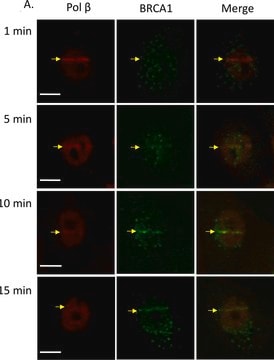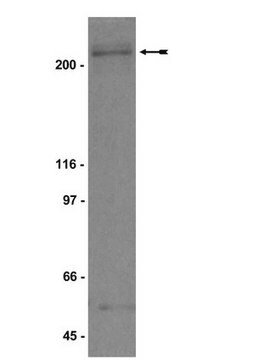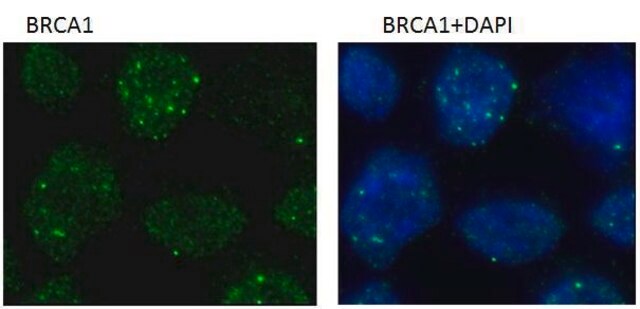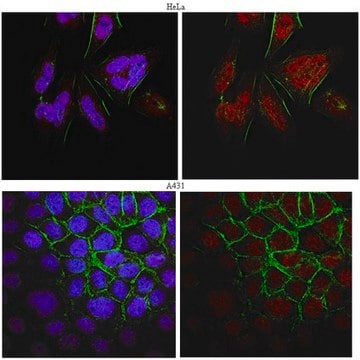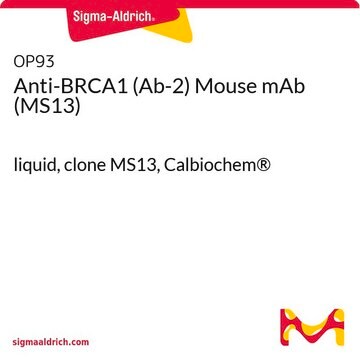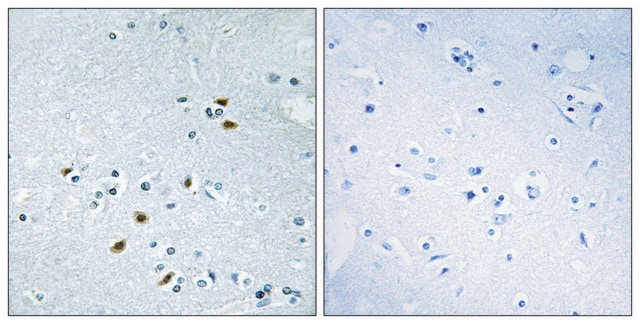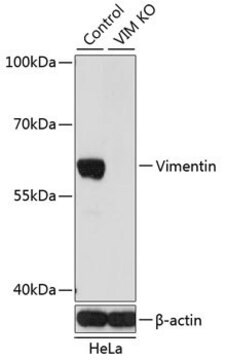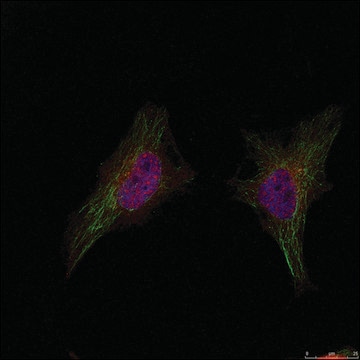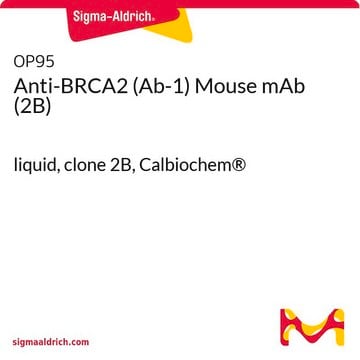MABC199
Anti-BRCA1 Antibody, clone MS110
clone MS110, from mouse
Synonyme(s) :
Breast cancer type 1 susceptibility protein, RING finger protein 53
About This Item
Produits recommandés
Source biologique
mouse
Niveau de qualité
Forme d'anticorps
purified immunoglobulin
Type de produit anticorps
primary antibodies
Clone
MS110, monoclonal
Espèces réactives
human
Technique(s)
immunocytochemistry: suitable
western blot: suitable
Isotype
IgG1κ
Numéro d'accès NCBI
Numéro d'accès UniProt
Conditions d'expédition
wet ice
Modification post-traductionnelle de la cible
unmodified
Informations sur le gène
human ... BRCA1(672)
Description générale
Spécificité
Immunogène
Application
A representative lot from an independent laboratory immunoprecipitated BRCA1 in IP (Wilson, C. A., et al. (1999).
A representative lot from an independent laboratory detected BRCA in ovarian cancer and breast cancer tissues (Scully, R., et al. (1996). Science. 272(5258):123-126; Wilson, C. A., et al. (1999).
A representative lot from an independent laboratory detected BRCA1 in a variety of certain cell lines (Scully, R., et al. (1996). Science. 272(5258):123-126.).
Apoptose et cancer
Cycle cellulaire, réplication et réparation de l'ADN
Qualité
Analyse par western blotting : µµ
Description de la cible
Forme physique
Stockage et stabilité
Remarque sur l'analyse
Extrait nucléaire de cellules HeLa
Autres remarques
Clause de non-responsabilité
Vous ne trouvez pas le bon produit ?
Essayez notre Outil de sélection de produits.
En option
Code de la classe de stockage
12 - Non Combustible Liquids
Classe de danger pour l'eau (WGK)
WGK 1
Point d'éclair (°F)
Not applicable
Point d'éclair (°C)
Not applicable
Certificats d'analyse (COA)
Recherchez un Certificats d'analyse (COA) en saisissant le numéro de lot du produit. Les numéros de lot figurent sur l'étiquette du produit après les mots "Lot" ou "Batch".
Déjà en possession de ce produit ?
Retrouvez la documentation relative aux produits que vous avez récemment achetés dans la Bibliothèque de documents.
Notre équipe de scientifiques dispose d'une expérience dans tous les secteurs de la recherche, notamment en sciences de la vie, science des matériaux, synthèse chimique, chromatographie, analyse et dans de nombreux autres domaines..
Contacter notre Service technique